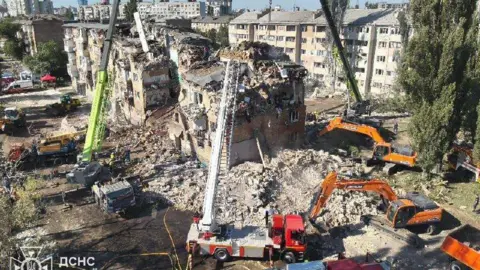Escalating Tensions: Militant Blockade Threatens Key Senegal-Mali Trade Route
Mali's military government is currently facing increasing unrest due to a blockade imposed by Islamist militants on major highways essential for trade and fuel supply. The situation has led to significant fear among lorry drivers, who have reported ambushes and arson attacks.
Prime Minister Abdoulaye Maïga has recently admitted the severity of the blockade and promised that measures are in place to enhance security on these critical routes, as the implications of this blockade could severely cripple Mali, a landlocked nation.
The Sahel region is regarded as one of the focal points of global terrorism, accounting for more than half of all terrorism-related casualties worldwide. Analysts indicate that the militants, associated with al-Qaeda, seem to be attempting to establish an embargo that would encapsulate the capital city, Bamako.
Background of the Blockade
The blockade reportedly began following the kidnapping and release of six Senegalese drivers along the Dakar-Bamako corridor early this month. This tactic is not new to al-Qaeda-linked groups, but the scale of their operations has greatly escalated.
Militants have set up checkpoints across key areas—particularly in the Kayes region, which is critical for food supplies entering from Senegal—and have also stated intentions to impose a 'tax' on traders. Reports have surfaced of them burning fuel tankers and disrupting transportation across the region.
The resultant economic stagnation has caused a shuttering of markets and public services. jNIM's ultimate aim appears to be an 'economic strangulation' of vital trade routes.
Military Response
Initially, the Malian army attempted to downplay reports of the blockade, characterizing them as misinformation. Army officials have claimed no systemic disruptions in transport and attributed difficulties to seasonal conditions rather than militant activity.
However, in light of ongoing challenges, the military has begun airstrikes against militant camps and deemed the situation as 'challenges from a fleeting enemy.' Resurgence in army operations, while intended to restore order, has had limited effect on public perceptions, with many still fearing militant presence and disturbance.
The Strategic Importance of Kayes
The Kayes region is generally regarded as a hub for the majority of Mali's economic activities, accounting for nearly 80% of the nation’s gold exports, as well as serving as a transit route for goods entering the country.
The blockade there symbolizes a considerable shift in JNIM's operations, indicating potential encroachment into southern Mali. Such developments jeopardize not only local economies but also threaten significant implications for the already fragile state infrastructures across West Africa.
Wider Implications
The ongoing crisis underscores the difficulties of relying on military solutions alone. Concerns grow regarding JNIM's ability to disrupt supply routes extending into regional economies, particularly those of neighboring Senegal and Mauritania—key trade partners for Mali.
Trade between Mali and Senegal is substantial, represented by over $1.4 billion in exports last year. Failure to resolve this blockade poses risks of escalating into a prolonged siege, with profound effects on both countries’ economic stability and regional cohesion.



















